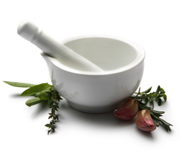
|
Andropause There has been much focus on female menopause, and rightly so. Men, however, also go through a type of menopause referred to as "andropause." The change in male hormones starting at about age 40 may not be as noticeable as that in women, but it can be quite disruptive. Recent surveys of males reveal that what most men want is to have healthy sexual function, lean and strong muscular bodies, high energy and vitality, and a full head of hair. Three key ways to promote men's health: * Maintain proper levels of testosterone and estrogen. Testosterone levels: It is estimated that about 50 percent of men over the age of 50 have decreased levels of testosterone. After his mid 20s, a man's testosterone production decreases by about 2 percent every year. Testosterone is needed to maintain sexual function, lean body mass, vitality and energy. While testosterone serves many healthy functions, it is metabolized into dihydrotestosterone (DHT), which can be harmful to males if produced in excess. DHT is linked to prostate enlargement, cancer and baldness. Many prostate cancer therapies aim to decrease DHT. Likewise, most prescription balding medicines reduce DHT in the hair follicle, thus allowing the hair to grow back. Foods that help promote lower DHT levels are soy, cruciferous vegetables (broccoli, kale, Brussels sprouts and cauliflower), green tea and certain fruits. I have seen cases where a person's hair started to fall out, but grew back when he or she took certain supplements and made dietary changes. I would suggest any man (or woman) close to 40 and above take the following herbs: * Soybean concentrate with isoflavones - 125 mg It is important that flax seed be fresh. I like to buy the whole seed and grind 2 - 3 days' worth in a clean coffee grinder and store it in the freezer. The Testosterone Syndrome by Dr. Shippen outlines quite well the role of testosterone and the levels necessary to maintain health. Estrogen levels: Most men don't consider estrogen important to their health, but it does play a role. In my last article (see "Breast Health" in issue #10), I spoke about the role of the 2-OH and 16alpha-OH type of estrogens, with the former usually being more beneficial and 16alpha-OH being more harmful to women. The same is true for men. Excess 16alpha-OH estrogens can be reduced by taking one tablespoon of ground flax seed a day, as already mentioned, as well as 400 mcg of folic acid and 200 mcg of B12. Stress management and proper adrenal function: Prolonged stress can lead to an elevation in cortisol, a hormone secreted by the adrenal glands. These glands sit on top of the kidneys, and their main function is to regulate stress. Over time, elevated cortisol leads to increased blood sugar, fat and blood pressure and decreased levels of testosterone, sex drive and the ability to maintain an erection and lean body mass. The best way to help lower cortisol is through exercise, diet and consumption of certain nutrients. Walking just 4 - 5 days a week for 20 - 30 minutes will significantly reduce cortisol levels. Adding in mild to moderate weight lifting for 30 minutes twice a week is very helpful. It is also noteworthy that there is an enzyme called aromatase that is produced in fat. The more fat someone has, the more aromatase is produced. The function of aromatase is to make more estrogen and DHT — the two hormones harmful to the prostate. Thus, the leaner the body, the less harmful hormones are produced. Eating more protein and vegetables and reducing refined carbohydrates and certain fats will help establish normal cortisol levels. While every person is different, I do think the somewhat trendy book The South Beach Diet does a good job of recommending foods that balance our stress hormones. To balance cortisol: * B5 - 1000 mg (pantothenic acid) and B6 - 200 mg Cardiovascular health: Most studies have linked poor vascular health to a decrease in sexual function, libido and erections. High blood pressure is an indication of vascular imbalance. Clearly, exercise is just as important to vascular health as it is to stress management. I also suggest the following supplements: * 2,000 mg per day of fish oil, tested for pesticides, heavy metals and other pollutants. Nordic Naturals is a good brand. I have also found vitamin D (1,000 - 2,000 IUs per day) to promote overall health in the male body. Diet and nutrition play a huge role in maintaining our health, and the above suggestions can definitely raise men's vitality, strength and sexual function.
|
